Understanding the Path to Better Outcomes for Children with Autism
Navigating an autism diagnosis can be overwhelming for families, but parent training programs emerge as vital resources that empower caregivers to support their child's development effectively. By providing parents with evidence-based strategies, tailored guidance, and community connections, these programs foster confidence and resilience, ultimately improving developmental outcomes for children with autism.
The Crucial Role of Early Intervention and Parent Participation
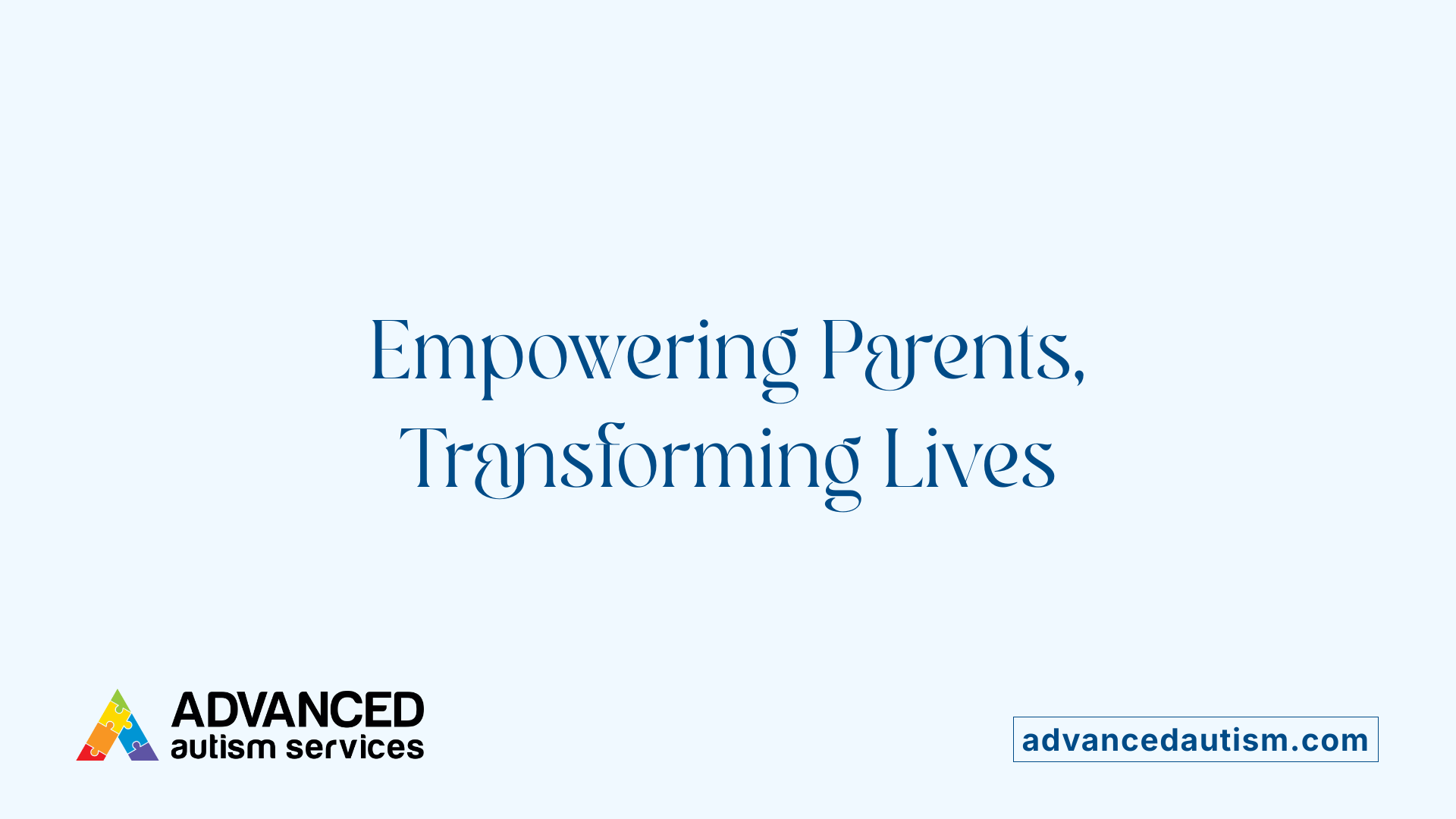
Why is early intervention important, and how does parent training contribute to the development of children with autism?
Early intervention is vital for children diagnosed with autism spectrum disorder (ASD) because it targets critical periods of brain development. When started early, therapies can significantly improve children's social, communication, and behavioral skills. These improvements are often more substantial because the brain's plasticity is at its peak during early childhood, making it more receptive to learning new skills.
Parent training plays a crucial role in making early intervention more effective. By teaching caregivers how to implement specific therapeutic techniques consistently, parents can reinforce what their child learns during therapy sessions. This seamless integration of strategies into daily routines ensures that children receive continuous support, which is essential for skill generalization across different settings.
Active parental involvement accelerates progress by reducing challenging behaviors, increasing social engagement, and fostering emotional regulation. It also helps create a predictable, structured environment that benefits children with autism. For example, programs like the Early Start Denver Model (ESDM) and JASPER (Joint Attention, Symbolic Play, Engagement, and Regulation) have shown that when parents are trained to actively participate, the outcomes for children improve markedly.
Research evidence supports that caregiver-mediated interventions not only promote better developmental results but also reduce caregiver stress. Such training boosts parent confidence, strengthens parent-child relationships, and supports overall family wellbeing. Combined with early diagnosis and access to appropriate services, parent involvement forms a critical component of effective autism intervention, helping children reach their full potential and fostering independence later in life.
What empirical evidence supports the importance of parent involvement?
Empirical data from intervention programs like P-ESDM and JASPER demonstrate clear benefits. These programs focus on teaching parents strategies to promote joint engagement, responsiveness to attention cues, and diverse play skills.
| Program | Focus Area | Improvement Outcomes | Additional Details |
|---|---|---|---|
| P-ESDM | Early social-communication | Increased social engagement, language skills | Designed for very young children and their parents |
| JASPER | Joint attention, play skills | Better responsiveness, reduced challenging behaviors | Emphasizes parent coaching and practice |
Furthermore, research shows that caregiver training reduces parent stress and depression, which in turn creates a more supportive environment for the child's growth. Studies consistently support that empowering parents with the right tools and strategies leads to better developmental trajectories for children with autism.
How do programs like P-ESDM and JASPER improve outcomes?
These programs showcase integrated approaches that combine structured therapy with parent involvement. They help parents learn to implement interventions that boost social interaction, communication, and self-regulation. With guidance, parents practice techniques, receive feedback, and adapt strategies to their child's evolving needs. This collaborative effort reinforces the child's learning, promotes consistency, and accelerates progress.
In summary, early diagnosis paired with parent training creates a powerful foundation for supporting children with autism. When caregivers are equipped with effective strategies, children benefit from improved developmental outcomes, and families experience greater confidence and reduced stress. This holistic approach offers children with ASD the best chance to thrive and develop lifelong skills.
Supporting Families Through Knowledge and Navigation
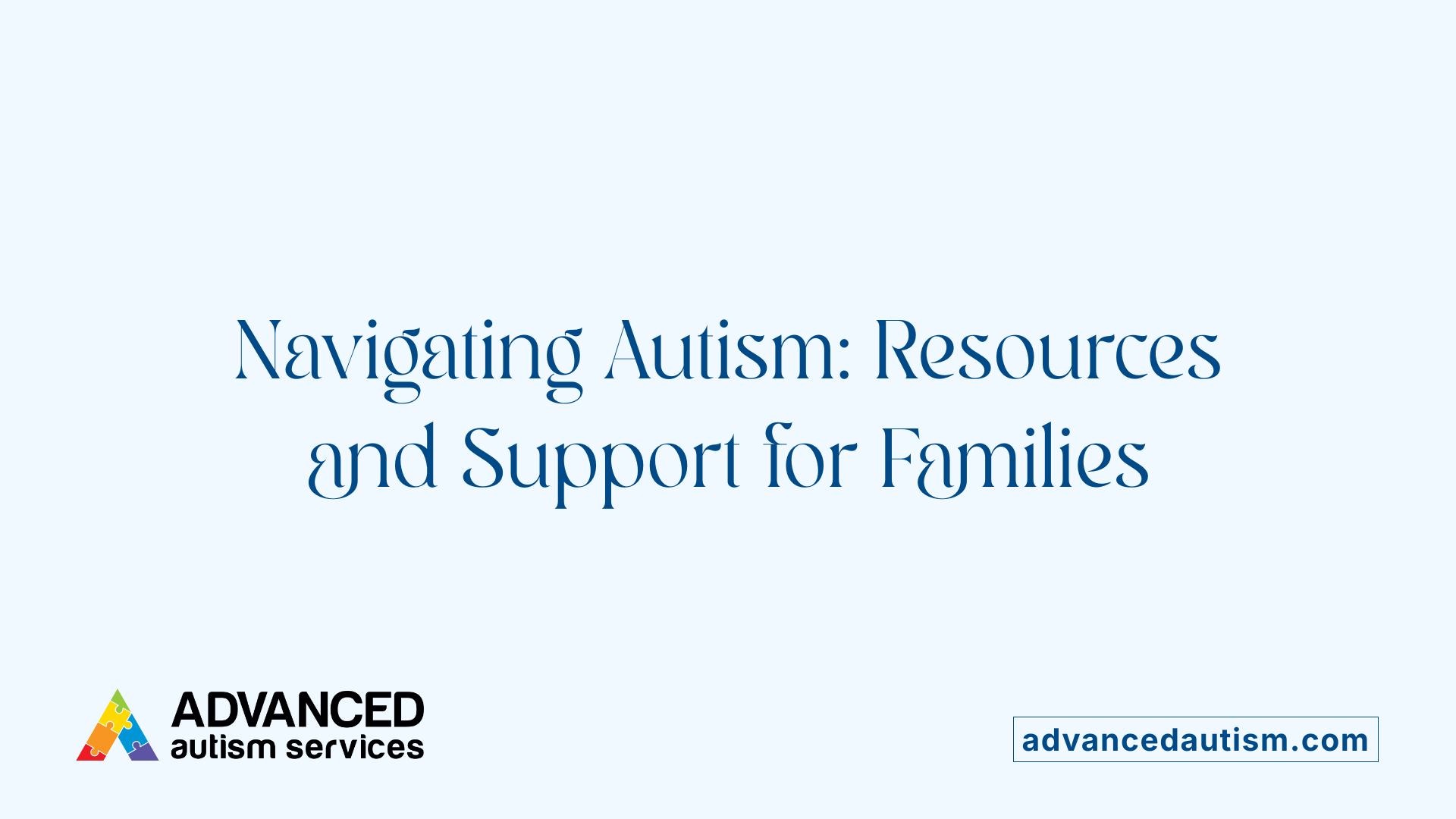
How does parent training support families in managing autism diagnosis and treatment?
Parent training is a vital component in supporting families coping with an autism diagnosis. It provides caregivers with essential knowledge about intervention strategies, helping them understand their child's unique needs and how to implement effective support techniques at home.
These programs often include psychoeducation, which boosts parental awareness of autism and its challenges. Caregivers learn how to coordinate care among healthcare providers, educators, and therapists, making navigation of complex systems smoother and more effective.
A significant aspect of parent training involves teaching parents how to use evidence-based methods, such as Applied Behavior Analysis (ABA) and positive reinforcement. These strategies enable parents to directly target core symptoms like social communication difficulties and behavioral challenges.
Research shows that parent-mediated interventions not only improve children's social skills and reduce maladaptive behaviors but also lessen parental stress and increase confidence. For example, programs like Project ImPACT and the JASPER model have demonstrated improvements in joint engagement and responsiveness, key factors in social development.
Moreover, ongoing participation in support groups and personalized training fosters a sense of community and empowerment. This emotional and informational support enables caregivers to actively contribute to their child's progress while feeling less isolated.
In essence, parent training creates consistent, nurturing environments that maximize the effectiveness of clinical interventions. When parents are equipped with the right tools and understanding, children with ASD benefit from more stable routines, better communication, and improved long-term outcomes.
Components and Formats of Parent Training Programs
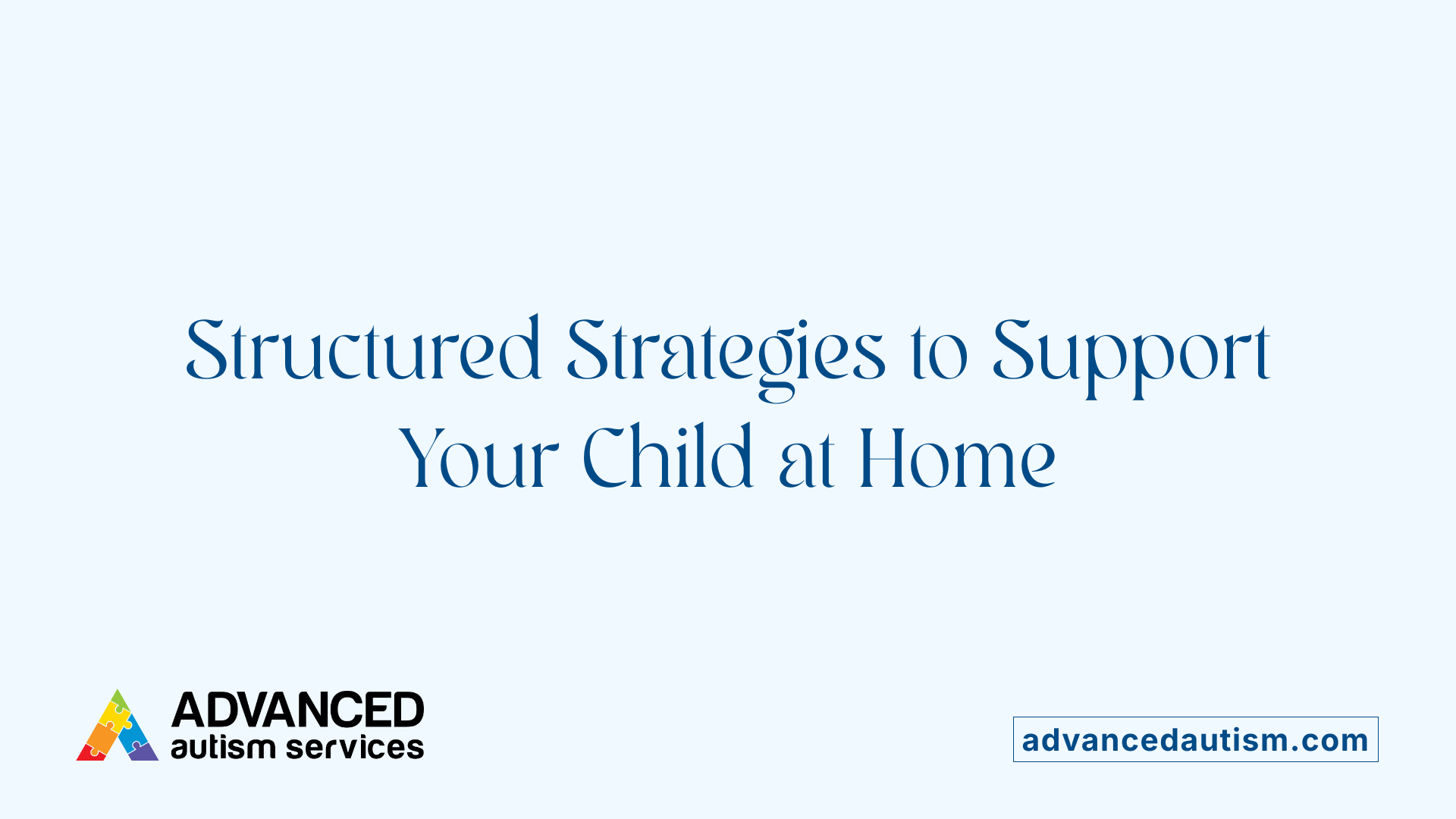
What are the key components and formats of parent training programs for autism?
Parent training programs designed for families of children with autism cover a wide range of essential skills and strategies to support their child's development. Core elements include behavior management techniques, communication support, fostering social interactions, and caregiver self-care.
The programs typically involve teaching parents how to implement evidence-based strategies, such as applied behavior analysis (ABA), positive reinforcement, and visual supports. These approaches help manage challenging behaviors, improve communication skills, and promote social engagement.
Training is offered in various formats to accommodate different family needs. Common delivery methods include in-person workshops, one-on-one coaching sessions, group classes, and digital platforms like online modules or telehealth services. The frequency and duration can vary from intensive short-term sessions to ongoing support over months.
Popular programs like RUBI (Research Units in Behavioral Interventions), JASPER (Joint Attention, Social, and Play Engagement), and Project ImPACT (Improved Play and Communication Training) exemplify structured curricula. They combine modeling, role-playing, homework, and personalized feedback to reinforce learning.
These programs emphasize individualized planning tailored to each child's unique needs, empowering caregivers with practical skills that can be applied at home, school, and community settings. Ultimately, integrated parent training fosters competence and confidence among caregivers while leading to better developmental outcomes for children with autism.
Benefits and Effectiveness of Parent Training Programs
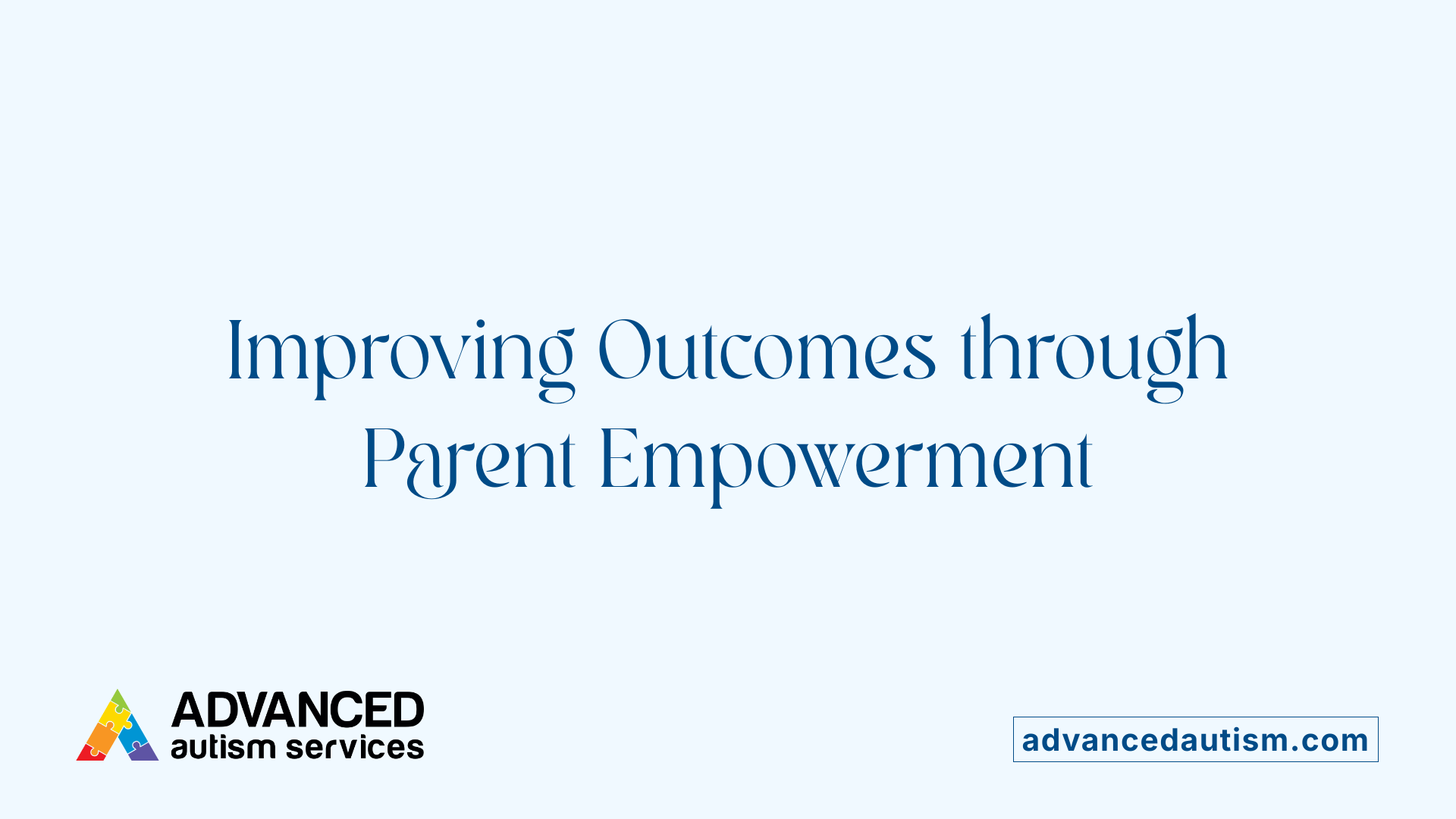
What benefits do different parent training programs offer for families of children with autism?
Parent training programs for families of children with autism provide a wide array of positive outcomes. These structured programs teach caregivers to understand and respond effectively to their child's unique needs, significantly improving their caregiving skills.
One of the main benefits includes better child development. Children tend to show notable progress in social skills, communication, and emotional regulation. For instance, interventions based on naturalistic approaches, like Pivotal Response Treatment and JASPER, focus on promoting social engagement and responsiveness, leading to enhanced joint attention and play skills.
Parents also benefit from reduced stress and increased confidence. Training programs often include collaborative learning, peer support, and ongoing coaching, which empower caregivers to manage behavioral challenges more effectively. Many families find that routine management becomes easier, and parent-child relationships become stronger.
Supporting parental wellbeing is crucial. Techniques like mindfulness-based stress reduction (MBSR) and Acceptance and Commitment Therapy (ACT) integrated into some programs can help reduce parental anxiety and depression. This, in turn, promotes a more positive environment for the child's growth.
Research shows these programs not only improve child outcomes but also foster family resilience. Well-structured parent training can lead to meaningful improvements in behavioral issues, such as aggression or self-injury, especially when they are addressed through function-based interventions taught during training.
While many benefits are supported by current research, further large-scale studies are necessary to verify long-term effects and cost-efficiency across diverse populations and settings. Nonetheless, the available evidence highlights that investing in parent education is vital for optimizing developmental progress and family wellbeing.
Understanding and Participating in Treatment Plans
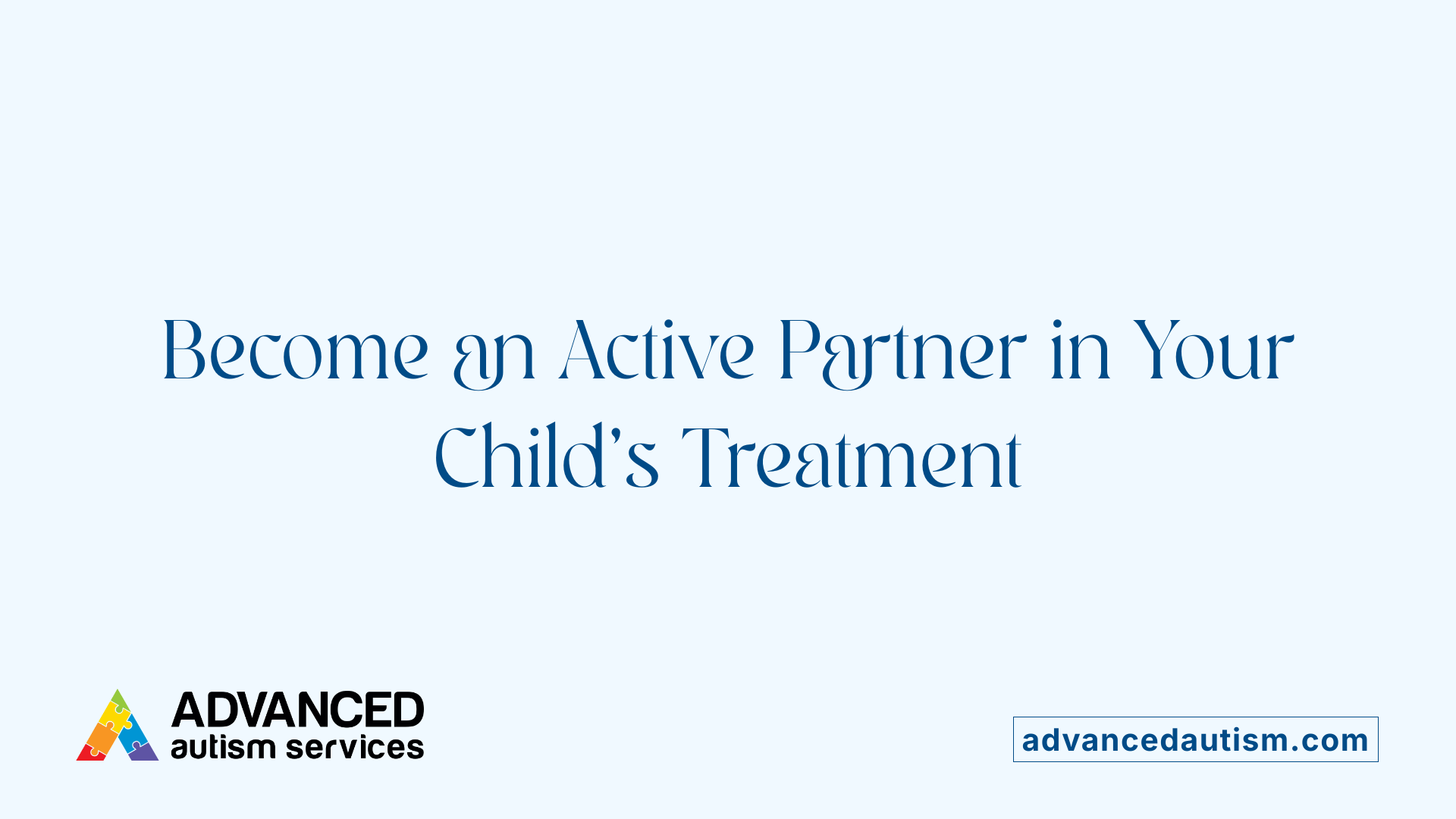
How can parent training help families understand intervention strategies and effectively participate in treatment plans?
Parent training plays a vital role in empowering families to actively support their child's development through autism interventions. These programs focus on teaching caregivers how to observe, understand, and modify behaviors using evidence-based principles such as positive reinforcement and social learning.
During parent training sessions, caregivers learn practical skills like how to respond to challenging behaviors, encourage social communication, and structure routines at home. Techniques such as modeling, role-playing, and home practice enable parents to gain confidence and competence in applying intervention strategies consistently across different settings.
Effective parent training encourages a collaborative approach, where families work closely with clinicians to implement tailored strategies that meet their child's unique needs. This involvement not only enhances the child's progress but also improves family dynamics by fostering positive interactions and reducing stress and conflict.
By understanding the mechanics behind interventions, parents become better advocates and partners in their child's treatment. They are equipped to make informed decisions, adapt strategies as needed, and maintain behavioral improvements over time. Ultimately, parent training helps embed therapeutic strategies into daily routines, ensuring sustained support and maximizing developmental outcomes.
Resources and Strategies for Managing Challenges
What resources and strategies does parent training offer to help families manage challenges related to autism?
Parent training is a vital component of early intervention for children with autism. It offers a broad range of resources and practical strategies to support families facing various challenges. At its core, parent training provides educational materials, psychoeducation, and guidance to help caregivers understand autism spectrum disorder (ASD), navigate available intervention options, and advocate for their children effectively.
Through parent-mediated interventions and naturalistic developmental behavioral strategies, caregivers learn to implement techniques that enhance social communication and reduce problematic behaviors. These strategies encourage positive interactions and support skill development in natural settings, which can lead to significant improvements in children’s social, emotional, and behavioral outcomes.
Support coordination is another crucial element. It connects families with community resources, local services, and peer support groups, fostering a network of care and shared experiences. Additionally, many programs include guidance on managing challenging behaviors such as aggression or self-injury, equipping parents with practical tools to handle these issues safely and effectively.
Recognizing the importance of parental mental health, some training programs also address stress reduction and mental well-being. Techniques like mindfulness, ACT (Acceptance and Commitment Therapy), and MBSR (Mindfulness-Based Stress Reduction) are incorporated to help parents cope with stress and maintain a supportive environment.
These resources collectively empower caregivers, boosting confidence and resilience. The goal is to strengthen parent-child relationships, improve family functioning, and ensure that children receive consistent, high-quality support across all settings. Overall, parent training serves as a cornerstone for achieving better developmental outcomes and enhancing family well-being in the context of autism spectrum disorder.
Empowering Families and Strengthening Relationships
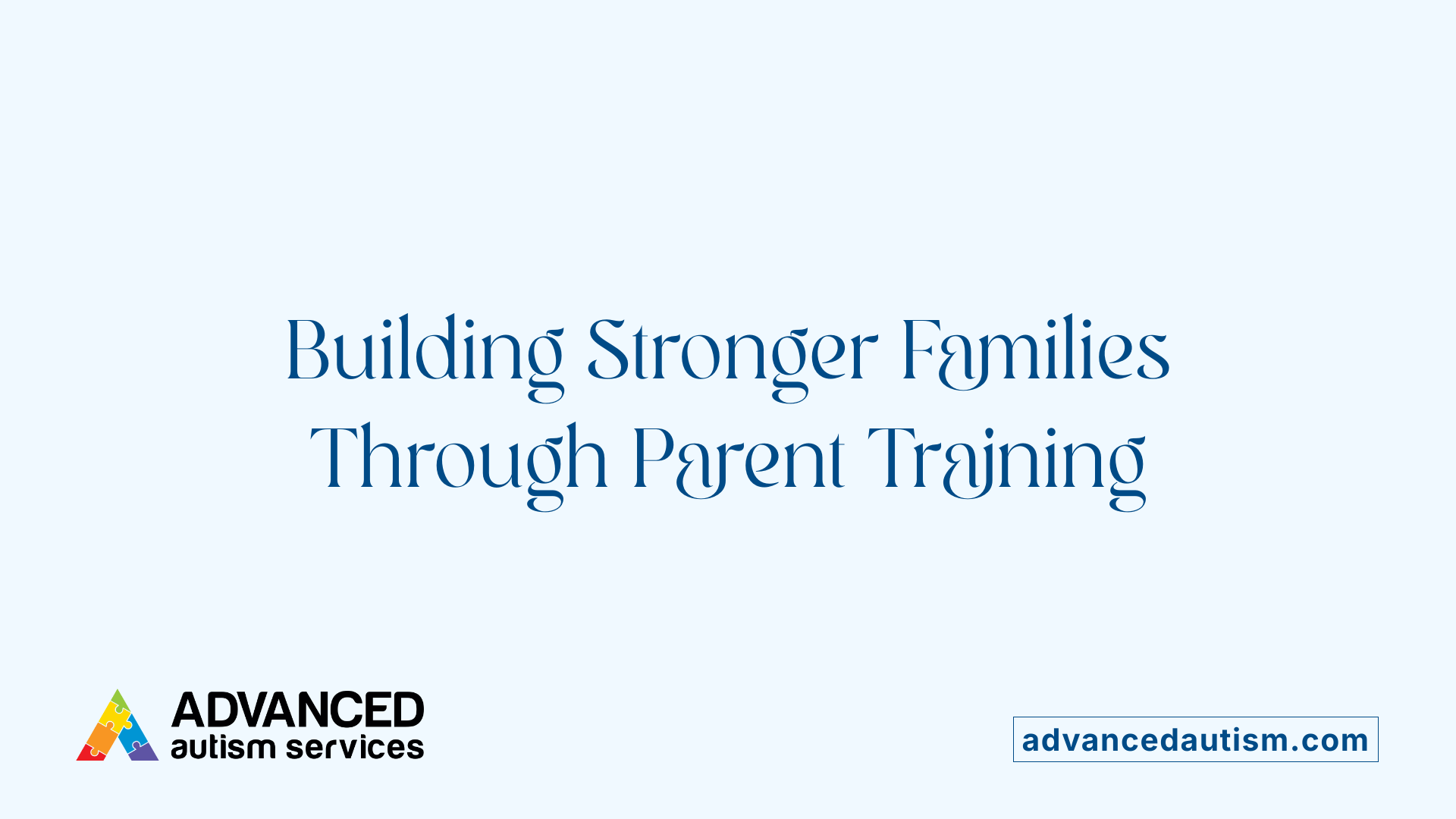
How does parent training help families understand intervention strategies and effectively participate in treatment plans?
Parent training programs play a vital role in equipping families with the skills needed to support their child's development. These programs teach caregivers how to observe and understand their child's behaviors, making it easier to identify triggers and progress.
Through structured lessons, parents learn practical strategies rooted in behavioral science, such as positive reinforcement and consistent discipline. They also develop effective communication techniques, which help foster a nurturing environment.
Instruction methods like modeling, role-playing, and home practice enable parents to confidently implement strategies in everyday situations. This hands-on approach helps ensure that interventions are carried out consistently across different settings, including home and school.
Parent training also enhances family dynamics by encouraging positive interactions and reducing conflicts. This supportive environment is crucial as it promotes the child's social and emotional growth.
Overall, these programs foster a spirit of collaboration between families and therapists. By understanding intervention methods and feeling confident in their roles, caregivers can stay actively involved in treatment plans, ensuring that behavioral improvements are sustained over time.
What is the significance of caregiver involvement in early intervention for children with ASD?
Active participation of caregivers in early intervention strategies, such as naturalistic developmental behavioral interventions (NDBIs), greatly influences outcomes. When parents engage in teaching and practicing strategies like joint attention and diverse play skills, children exhibit significant improvements in social communication.
Caregiver-mediated interventions not only boost the child's skills but also reduce parental stress and depression, creating a healthier family environment. Programs like Project ImPACT and JASPER have demonstrated success in increasing joint engagement and response to social cues.
Additionally, training programs such as RUBI, PTR, and AIM HI help parents manage challenging behaviors like aggression and self-injury by teaching function-based interventions. Telehealth models further improve access, especially for families in rural or underserved areas.
Supporting family members beyond parents—including co-parents and siblings—can strengthen intervention effectiveness and lessen caregiver burden. This comprehensive approach ensures children receive consistent support, amplifying positive developmental trajectories.
Why are resources and community support essential for families navigating a child's autism diagnosis?
Connecting families to local and national resources, like Autism Speaks and support groups, provides crucial emotional support and practical guidance. Early diagnosis allows for timely intervention services such as speech, occupational therapy, and behavioral therapy, which are essential for improving outcomes.
Clinicians can assist families with evaluations, developing Individualized Education Plans (IEPs), and understanding legal rights under laws like IDEA and ADA. Support networks and advocacy groups empower parents to navigate complex systems and advocate effectively for their child's needs.
Moreover, family support activities and peer groups reduce feelings of isolation and offer shared experiences and practical tips. Access to insurance coverage and reputable service providers ensures continuity of care.
By fostering a strong support network, families can build resilience, strengthen parent-child relationships, and sustain their child's growth and development in a nurturing environment.
| Aspect | Details | Additional Notes |
|---|---|---|
| Parent Training Goals | Understanding strategies, active participation, confidence building | Includes modeling, role-playing, feedback |
| Intervention Types | NDBIs, ABA, functional behavior analysis | Focus on social, communication, and behavioral skills |
| Support Resources | Support groups, online tools, local services | Examples include Autism Speaks, local centers |
| Legal & Advocacy | Understanding rights, developing IEPs | Essential for accessing services |
| Family Involvement | Caregivers, siblings, extended family | Enhances intervention outcomes |
Supporting families through education, community resources, and active participation creates a stronger foundation for children with autism to thrive and for families to feel empowered and resilient.
Moving Forward with Confidence and Support
Parent training programs serve as a cornerstone in the journey of families navigating autism diagnosis and treatment. By equipping caregivers with evidence-based strategies, fostering understanding, and providing emotional support, these programs help families create a stable, nurturing environment that promotes the child's development. As research continues to validate their effectiveness, leveraging diverse formats—including telehealth and community resources—ensures broader access and tailored support. Ultimately, well-trained parents are better prepared to advocate for their children, implement therapeutic techniques, and build resilient family units, paving the way for more positive outcomes and hope for children with autism and their families.
References
- Advances in Supporting Parents in Interventions for Autism ...
- Parent Training for Autism | BrainWorks Behavioral Health
- How to help families awaiting an autism diagnosis
- Parent Training and Support in ABA Therapy for Children with Autism
- Resources For Parents Navigating an Autism Spectrum Disorder ...
- Navigating the Maze of Autism Services: Tips for Parents
- Parent Training in Autism Spectrum Disorder: What's in a Name?
- Parent Training and Support in ABA Therapy for Children with Autism



